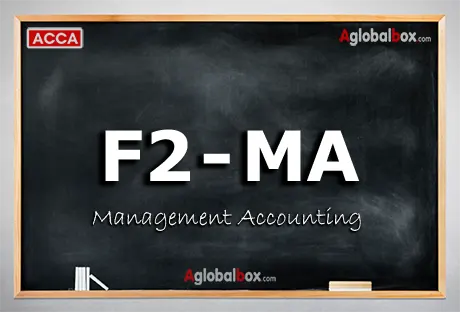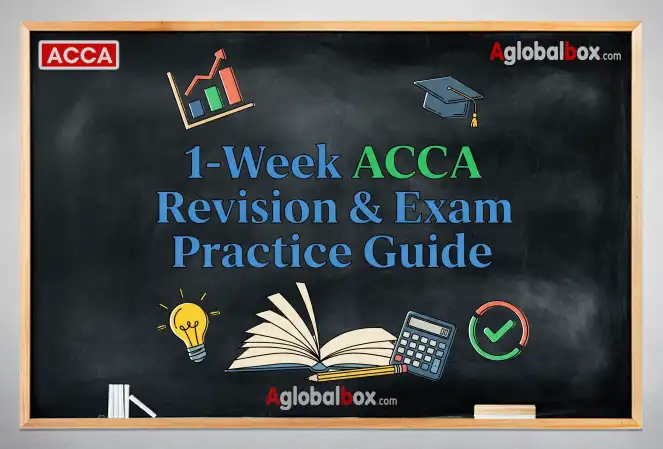Are you searching for comprehensive study materials and resources to excel in your F2 Workbook Management Accounting examination? The ACCA F2 Management Accounting paper requires thorough preparation, practical understanding, and access to quality study resources. This guide will provide you with everything you need to know about the F2 module, effective study strategies, and how to maximize your chances of success.
The F2 Workbook Management Accounting module serves as a fundamental building block in your ACCA journey. Understanding management accounting principles, cost behavior, and decision-making techniques is crucial for your professional development and exam success.
Table of Contents
| Section | Description |
|---|---|
| What is F2 Management Accounting | Overview of the module and its importance |
| Difficulty Level and Pass Rates | Understanding the challenges and statistics |
| Why Choose BPP Materials | Benefits of using BPP study resources |
| Advantages of PDF Workbooks | Digital learning benefits |
| Study Planning Strategies | Effective preparation techniques |
| Exam Preparation Methods | Proven study approaches |
| Last Minute Preparation Guide | Final revision strategies |
| Key Takeaways | Essential points summary |
| FAQ | Common questions answered |
What is F2 Management Accounting Module of ACCA
The F2 Management Accounting module is a fundamental paper in the ACCA qualification that focuses on the principles and techniques of management accounting. This module introduces you to cost accounting, budgeting, variance analysis, and decision-making tools that are essential for business management.
The syllabus covers five main areas:
- Cost accounting systems and their implementation
- Budgeting and budgetary control mechanisms
- Standard costing and variance analysis techniques
- Performance measurement and evaluation methods
- Decision-making using relevant costing approaches
You will learn to analyze costs, prepare budgets, calculate variances, and make informed business decisions. The module emphasizes practical application of management accounting concepts in real-world business scenarios.
F2 Management Accounting Syllabus Structure
The syllabus is designed to build your understanding progressively:
Section A: The Nature and Purpose of Management Accounting
- Role of management accounting in organizations
- Cost classification and behavior patterns
- Accounting for materials, labor, and overheads
Section B: Cost Accounting Techniques
- Job, batch, and process costing methods
- Activity-based costing principles
- Life cycle costing concepts
Section C: Budgeting and Standard Costing
- Budget preparation and coordination
- Standard costing systems
- Variance analysis and interpretation
How Difficult is it to Study and Pass F2 Management Accounting
The F2 Management Accounting module presents moderate difficulty for most students. With proper preparation and consistent study, you can achieve success in this examination.
Pass Rate Statistics
Recent ACCA statistics show that F2 has maintained reasonable pass rates:
- Global pass rate typically ranges between 75-85%
- Computer-based testing has improved accessibility
- Regular exam sittings allow flexible scheduling
Common Challenges Students Face
Conceptual Understanding: Many students struggle with cost behavior patterns and their practical applications. The distinction between fixed, variable, and semi-variable costs requires careful study.
Calculation Accuracy: Variance analysis and standard costing calculations demand precision. Small errors can lead to incorrect conclusions and lost marks.
Time Management: The exam requires efficient time allocation across different question types. Practice with timed mock exams is essential.
Application Skills: Understanding concepts is important, but applying them to business scenarios requires practice and analytical thinking.
Success Factors
Students who pass F2 typically demonstrate:
- Strong foundation in basic accounting principles
- Regular practice with numerical calculations
- Understanding of business contexts
- Effective exam technique and time management
Why Use BPP Study Materials
BPP Learning Media is a leading provider of ACCA study materials, offering comprehensive resources specifically designed for exam success. Their materials are developed by experienced professionals and regularly updated to reflect current syllabus requirements.
Key Advantages of BPP Materials
Syllabus Coverage: BPP materials provide complete coverage of the F2 syllabus with detailed explanations and practical examples. Every learning outcome is addressed thoroughly.
Quality Assurance: The content is reviewed by subject matter experts and updated regularly to maintain accuracy and relevance.
Exam Focus: Materials are designed with exam success in mind, emphasizing key concepts and common question types.
Interactive Elements: Modern BPP resources include interactive features, practice questions, and self-assessment tools.
BPP Study Resources for F2
Study Text: Comprehensive coverage of all syllabus areas with clear explanations and worked examples.
Practice & Revision Kit: Extensive question bank with detailed solutions and examiner guidance.
Workbook: Practical exercises and activities to reinforce learning.
Online Resources: Digital platforms with additional practice questions and study tools.
Why Use PDF Workbooks
PDF workbooks offer significant advantages for modern students, combining convenience with comprehensive content. Digital study materials have become increasingly popular due to their accessibility and practical benefits.
Benefits of Digital Study Materials
Portability: Access your study materials anywhere, anytime on multiple devices. Whether you’re commuting, traveling, or studying at different locations, your materials are always available.
Searchability: Quickly find specific topics, concepts, or examples using search functions. This saves valuable study time and improves efficiency.
Cost-Effective: Digital materials often cost less than printed versions while providing the same comprehensive content.
Environmental Benefits: Reduce paper consumption and contribute to environmental sustainability.
Features of Quality PDF Workbooks
Interactive Elements: Modern PDF workbooks include clickable links, bookmarks, and navigation tools for enhanced usability.
Printability: You can print specific sections when needed while maintaining digital access to the complete resource.
Regular Updates: Digital materials can be updated more frequently to reflect syllabus changes and improvements.
Multimedia Integration: Some PDF workbooks include embedded videos, audio explanations, and interactive exercises.
How to Plan Your F2 Study Schedule
Effective planning is crucial for F2 success. A well-structured study schedule ensures comprehensive coverage of all topics while maintaining consistent progress.
Creating Your Study Timeline
Assessment Phase: Begin by evaluating your current knowledge level through diagnostic tests or previous exam attempts.
Time Allocation: Dedicate 150-200 hours of study time for F2, spread over 12-16 weeks depending on your availability.
Topic Prioritization: Identify challenging areas that require additional attention and allocate more time accordingly.
Weekly Study Structure
Monday-Wednesday: Focus on new topic learning and concept understanding Thursday-Friday: Practice questions and application exercises Saturday: Review and consolidation of the week’s learning Sunday: Rest or light revision to maintain motivation
Monthly Milestones
Month 1: Complete cost accounting systems and basic costing methods Month 2: Master budgeting and standard costing concepts Month 3: Focus on variance analysis and decision-making techniques Month 4: Intensive revision and mock exam practice
Study Planning Tools
Progress Tracking: Use spreadsheets or apps to monitor your advancement through the syllabus.
Flexibility: Build buffer time into your schedule for unexpected challenges or additional practice needs.
Regular Review: Schedule weekly reviews to assess progress and adjust plans as necessary.
How to Effectively Prepare for the ACCA F2 Exam
Success in F2 Management Accounting requires a systematic approach combining theoretical understanding with practical application. Your preparation strategy should address all aspects of the examination.
Understanding the Exam Format
Question Types: F2 includes multiple-choice questions, multi-task questions, and longer computational problems.
Time Allocation: The 3-hour exam requires efficient time management across different question types.
Marking Scheme: Understanding how marks are allocated helps you focus on high-value areas.
Effective Study Techniques
Active Learning: Engage with the material through note-taking, summarizing, and explaining concepts to others.
Practice Integration: Combine reading with regular practice to reinforce learning and identify weak areas.
Spaced Repetition: Review topics at increasing intervals to improve long-term retention.
Building Technical Skills
Calculation Practice: Regular practice with variance analysis, standard costing, and budgeting calculations builds speed and accuracy.
Formula Mastery: Learn and practice key formulas until they become automatic.
Working Paper Techniques: Develop efficient methods for organizing calculations and presenting solutions.
Mock Exam Strategy
Timed Practice: Complete full mock exams under timed conditions to build stamina and improve time management.
Analysis: Review incorrect answers thoroughly to understand mistakes and prevent repetition.
Gradual Improvement: Track your performance over multiple mock exams to identify progress and remaining gaps.
Last Minute Preparation Guide for F2
The final weeks before your F2 Management Accounting exam are crucial for consolidating knowledge and building confidence. Your last-minute preparation should focus on revision, practice, and mental preparation.
Two Weeks Before the Exam
Comprehensive Review: Complete a full syllabus review, focusing on key concepts and formulas.
Practice Intensity: Increase practice question frequency, emphasizing areas of weakness.
Mock Exam Completion: Take at least two full mock exams to assess readiness.
One Week Before the Exam
Formula Revision: Ensure all key formulas are memorized and can be applied quickly.
Quick Review Notes: Prepare concise summary notes for final review.
Stress Management: Maintain regular sleep patterns and manage exam anxiety.
Day Before the Exam
Light Revision: Review summary notes and key formulas without intensive study.
Practical Preparation: Prepare exam materials, confirm exam location and time.
Relaxation: Engage in relaxing activities to maintain mental clarity.
Exam Day Strategy
Time Management: Allocate time based on question marks and difficulty.
Question Selection: Read all questions carefully before starting and tackle easier questions first.
Calculation Accuracy: Double-check important calculations and ensure clear working.
Final Review: Reserve time for final review and corrections.
Key Takeaways
- F2 Management Accounting is a fundamental ACCA module focusing on cost accounting, budgeting, and decision-making
- Success requires understanding concepts, practicing calculations, and developing analytical skills
- BPP materials provide comprehensive, exam-focused resources with proven effectiveness
- PDF workbooks offer convenient, searchable, and cost-effective study solutions
- Effective planning involves 150-200 hours of study over 12-16 weeks with regular practice
- Last-minute preparation should focus on revision, mock exams, and stress management
- Regular practice with variance analysis and standard costing is essential for exam success
- Time management and calculation accuracy are crucial skills for examination performance
Frequently Asked Questions
Q: How long does it take to prepare for the F2 Management Accounting exam? A: Most students require 150-200 hours of study time, typically spread over 12-16 weeks. The exact duration depends on your prior knowledge, study intensity, and learning pace.
Q: What are the most challenging topics in F2? A: Students commonly find variance analysis, activity-based costing, and decision-making techniques challenging. These areas require both conceptual understanding and practical application skills.
Q: Are BPP materials sufficient for F2 preparation? A: BPP materials provide comprehensive coverage of the F2 syllabus and are generally sufficient for exam preparation. However, supplementing with additional practice questions can enhance your preparation.
Q: How important is practice for F2 success? A: Practice is crucial for F2 success. The exam requires speed and accuracy in calculations, which can only be developed through regular practice with varied question types.
Q: Can I study F2 using only PDF materials? A: Yes, high-quality PDF materials can be sufficient for F2 preparation. However, ensure your chosen materials cover the complete syllabus and include adequate practice questions.
Q: What is the pass rate for F2 Management Accounting? A: The F2 pass rate typically ranges between 75-85%, making it one of the more achievable ACCA papers with proper preparation.
Q: How should I approach variance analysis questions? A: Develop a systematic approach: identify the variance type, gather relevant data, apply appropriate formulas, and interpret results in business context.
Q: Are there any specific calculator requirements for F2? A: ACCA allows approved calculators for F2 exams. Check the official ACCA website for the current list of approved calculator models.
Conclusion
The F2 Workbook Management Accounting module represents a crucial step in your ACCA journey, providing essential knowledge for management accounting and business decision-making. Success requires comprehensive preparation, regular practice, and effective study strategies.
By utilizing quality study materials, maintaining consistent study habits, and focusing on practical application, you can confidently approach your F2 examination. Remember that this module builds the foundation for advanced management accounting topics in your future ACCA studies.
Your preparation for F2 Management Accounting should combine theoretical understanding with practical skills development. Whether you choose traditional study methods or embrace digital resources, the key to success lies in consistent effort, regular practice, and thorough understanding of management accounting principles.





